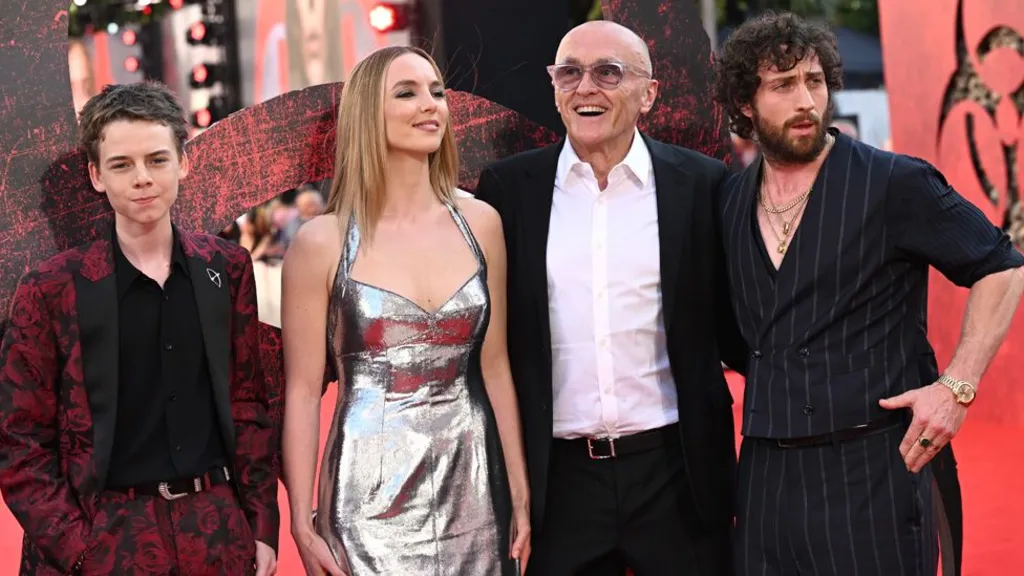Danny Boyle and Jodie Comer return with 28 Years Later, a new chapter in the zombie franchise that began with 28 Days Later in 2002. But this time, the horror hits closer to home.
Set decades after the outbreak, the film follows a family surviving on Holy Island off the UK coast. The Rage Virus is back and more evolved. But the real twist? The story reflects real-life trauma after Covid. Both the director and stars say the movie explores how we’ve adapted to life after a global crisis.

Boyle and writer Alex Garland use this world to show how people slowly take more risks, just like we did after lockdowns. And Jodie Comer’s performance adds emotional weight as she plays a sick mother trying to protect her son.
So What? Insights
Covid changed how we experience fear on screen. What once felt like “movie fiction” now feels dangerously possible. The film taps into that shared experience, empty streets, isolation, survival, and emotional distance.
Boyle says we now know what it’s like to live under threat. We’ve seen ghost towns. We’ve lost people. That emotional truth adds a new layer of horror to 28 Years Later, a story no longer just about zombies, but about the slow burn of surviving.
Comer’s role captures something many people felt during Covid: the tension between protecting loved ones and telling them the truth. It’s a story of survival, secrecy, and emotional risk.
Quick link: Conor McGregor Filmed Throwing Punches in Ibiza Nightclub
Key Implications
-
Post-Covid stories are more relatable. Even fictional horror now feels like a reflection of real life.
-
The fear of infection has changed. It’s less about shock and more about long-term damage.
-
Audiences expect depth, not just jump scares. Emotional stories are what connect now.
-
Characters like Isla remind us of the unseen mental toll of living through crisis.
Practical Takeaways
-
28 Years Later is more than a horror movie, it’s a mirror to our post-pandemic mindset.
-
Emotional honesty in crisis storytelling is more important than ever.
-
Audiences relate more deeply when characters reflect their lived experiences.
-
Jodie Comer proves once again that raw, human performances leave the biggest impact.
Final Thoughts
What makes 28 Years Later terrifying isn’t just the zombies, it’s how familiar everything feels.
The quiet streets, the isolation, the fragile hope. Boyle’s latest film is a reminder that fiction has finally caught up to reality and maybe passed it.
Stay Ahead Effortlessly with SoWhat
Want to stay informed without endless scrolling? SoWhat is your AI-powered insights assistant, delivering concise, personalised reports on world events straight to your inbox—every 24 hours. Stay sharp. Stay informed. Read your free report HERE.













huyqmf